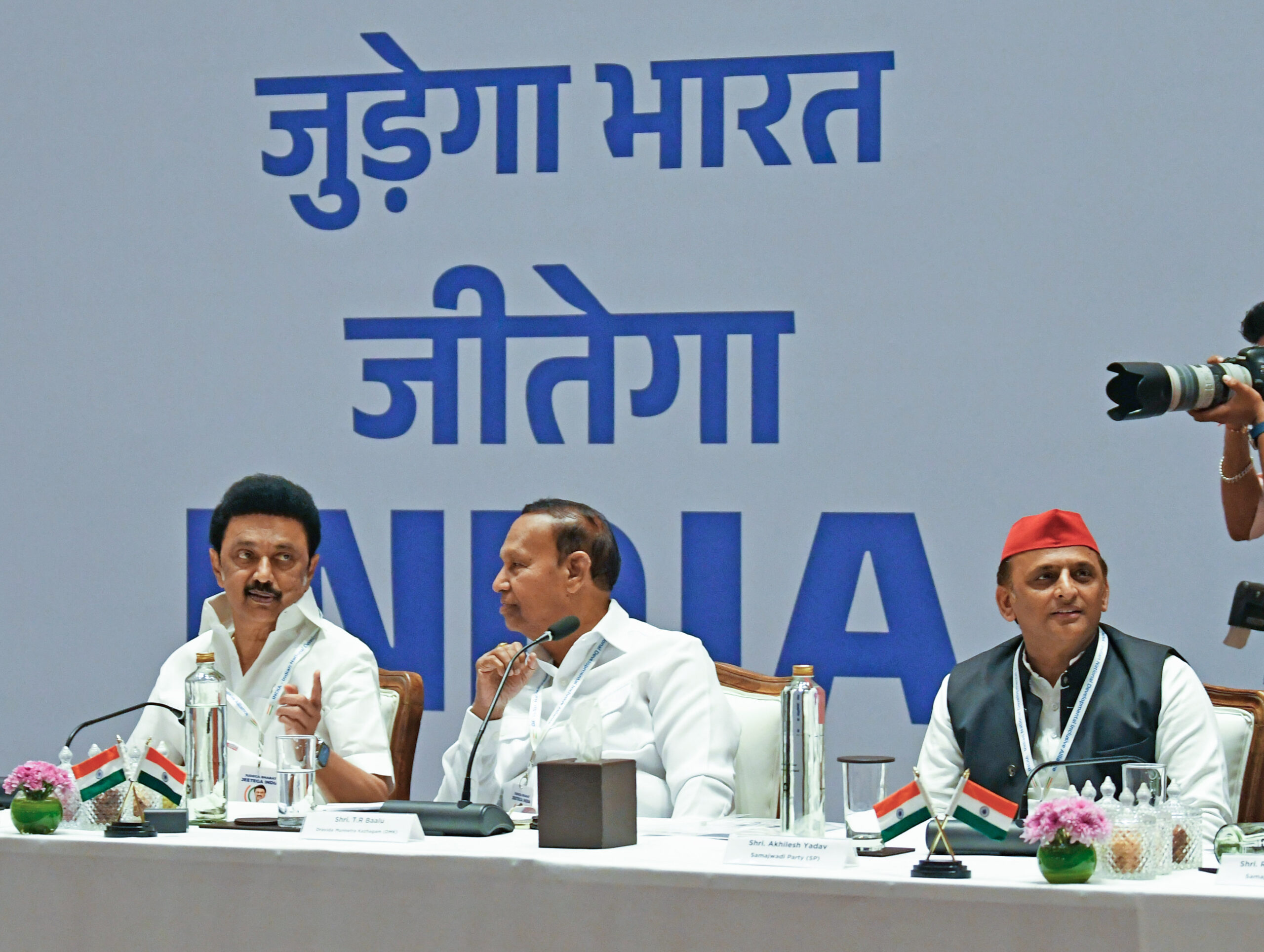
The decision by the Indian National Developmental Inclusive Alliance (INDIA) to boycott 14 Journalists and Anchors, as also four TV channels, is clearly flawed. The journalists whose list was released officially, are perceived by the INDIA constituents, to be politically inclined towards the ruling dispensation, and therefore have not been objective in their shows. These journalists and Channels have been described as part of the Godi Media, and the meeting of the INDIA coordination committee named them for allegedly distorting facts, and presenting a one-sided picture of any development. What needs to be understood is that journalists by and large work as per the policies of their media organisations, and have limited or no role in determining the guidelines. Yes, some of them may have gone overboard in carrying out the instructions, but it is inaccurate to blame them, if the perception war is being lost by the Opposition on most occasions. The J-14 list has perhaps left out many others, who may be wondering where they went wrong in implementing the will of the owners, and thus find their names missing from this august grouping. Some of the INDIA representatives who influenced the decision, have claimed that these journalists have been virtually put on notice, and unless they stop being unfair to the Opposition, their boycott would continue. In the event, they relent, this decision against them would be revoked after some time. The BJP has described this action as an attack on the freedom of the press. However, it is unfortunate and avoidable that in this fight and confrontation between the ruling dispensation and the Opposition, journalists are being targeted, and that too in the election year. Yes, many of the anchors do at times get carried away and appear to be siding with the spokespersons of the BJP. But there are other methods by which the Opposition can protest or make its voice heard, particularly when the social media platforms are immensely popular, and play a part in influencing public opinion. Boycotting shows is not an answer. It means that the Opposition is not utilizing forums which it construes to be hostile in giving their perspective. It would have been wiser for the INDIA constituents to be on the shows, and even if they felt that they were being denied a chance to express themselves, they could have made use of the limited time to push through their views. The viewers are not unintelligent and they can always make out what is going on, and thus can reach their own conclusions, which could be at variance with those of the concerned anchor. The boycott could turn out to be case of a missed opportunity to present the Opposition’s angle on any major issue. The decision of what to show or how to put across the narrative is taken by the owners or those who help in approving the policies. The journos simply carry out instructions most of the time and thus should not be targeted. A counter argument is that many anchors have been “parked’’ at TV channels by the ruling party for forwarding its overall agenda. They were being paid huge salaries to safeguard the BJP’s interests. This could be true in some cases, but then the “parking space’’ is provided by the management, and journos are not occupying it illegally. The more serious way of tackling this alleged prejudice against the Opposition would have been to stop advertisements to certain TV channels instead of targeting journalists. This way the message would reach the management which may be forced to review its policies. Each of the State governments run by the INDIA partners give crores of rupees to media houses to highlight their achievements. In case of both the ruling dispensation and the Opposition, the money spent on the advertisements is sometimes excessive. The BJP often accuses the Aam Aadmi Party in Delhi of being relevant only because of their media projections through advertisements. Such accusations are made also against many other state governments and the Centre as well. However, if the ads are stopped, there would be revenue loss, and the channels and the newspapers would be forced to think twice while enunciating their policies. Every regime has its own favourites so far as journalists go. There were many journos who thrived when the UPA was in power. However, for some reason, these journos have been relegated to side lines. Some of them run their own Youtube channels and their dedicated viewers continue to watch their programmes. Even before the electronic media and social platforms became popular, in the print era as well, there were journalists who were patronized by those in power. It happened both during the Congress rule and also when the BJP headed the government. During the Janata Party time, when LK Advani was the Information and Broadcasting Minister, there were allegations that he had succeeded in placing journalists close to the RSS ideology in certain prominent papers. In the West, newspapers and periodicals pursue their own lines with some favouring those in power and others opposing it. In America the Republican press and the Democratic press can easily be distinguished. Therefore, the INDIA partners must review their decision, and considering that it could be counter-productive withdraw this banor what they describe as “non-cooperation’’. It would help them to utilize platforms which in their perception are hostile. There is no point in blaming journalists.